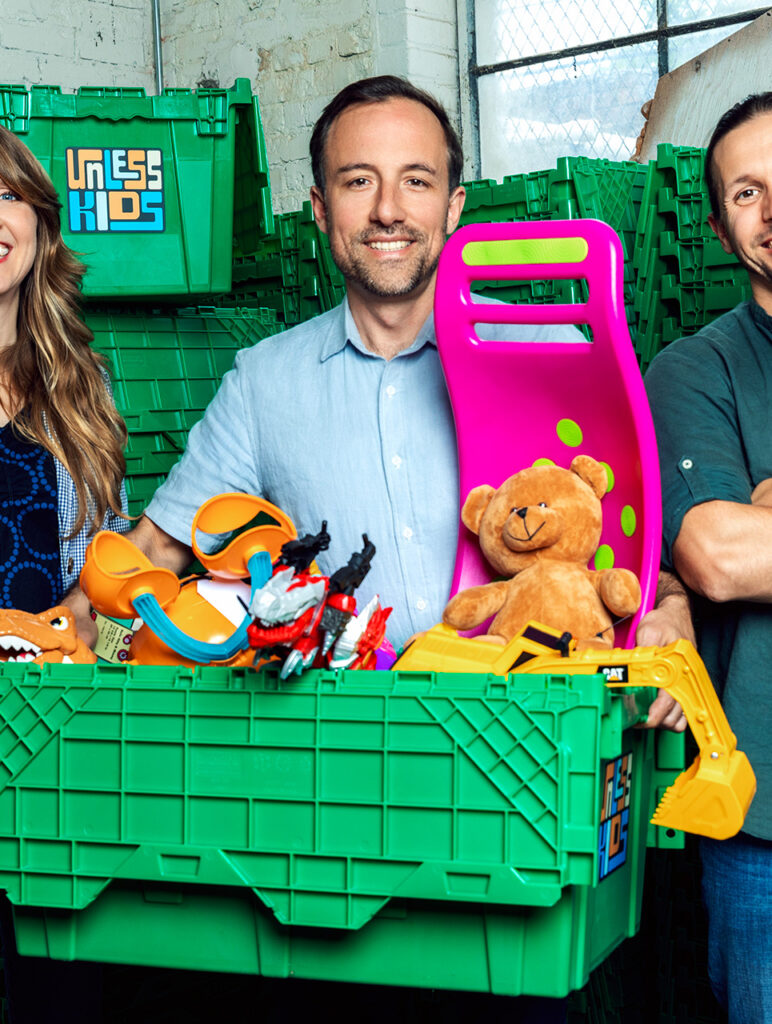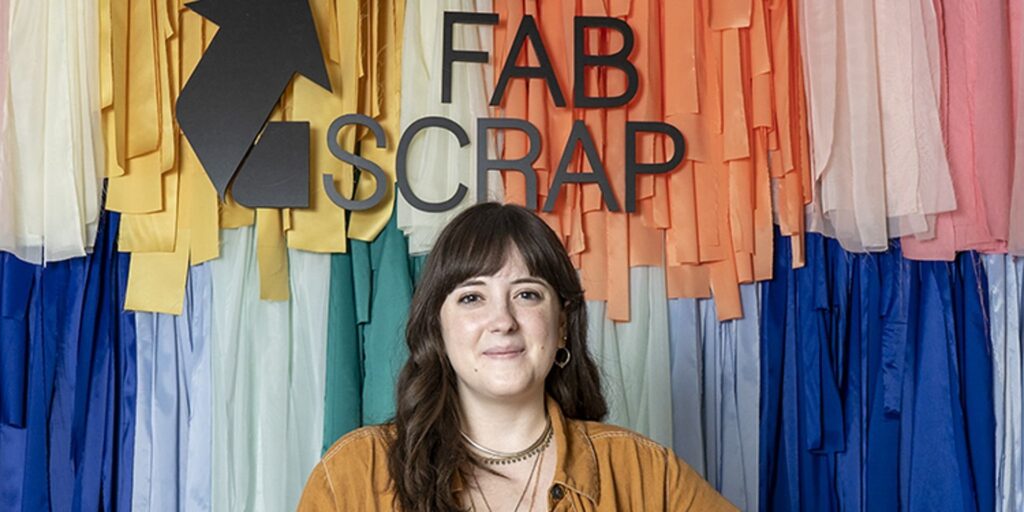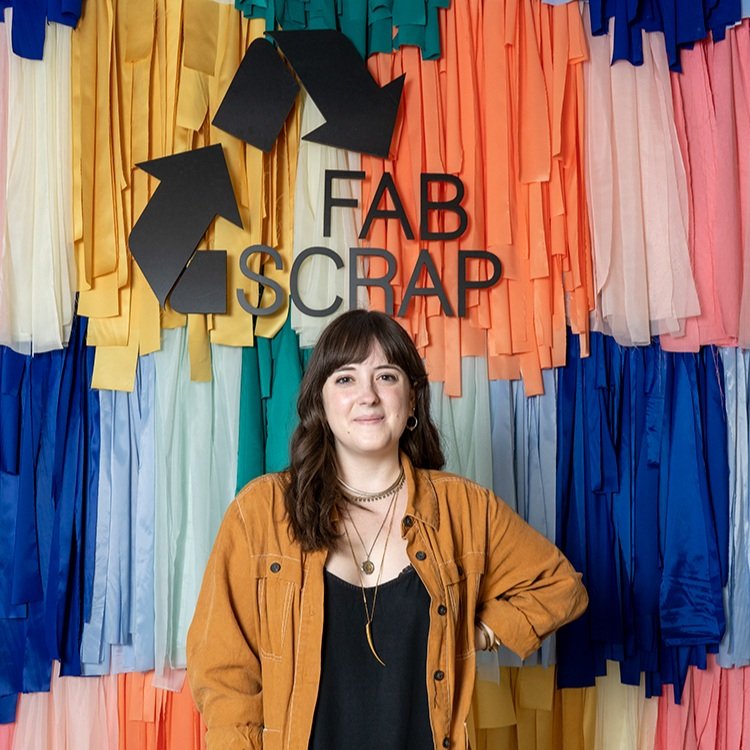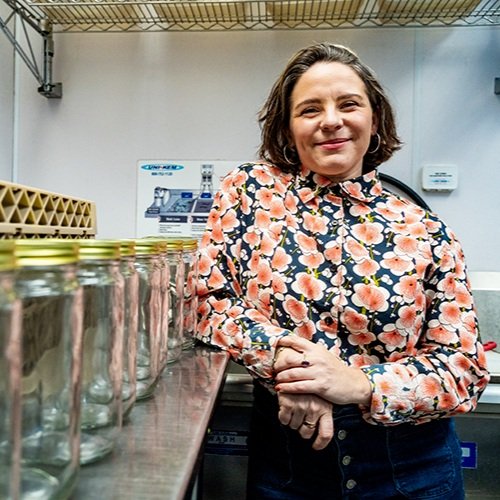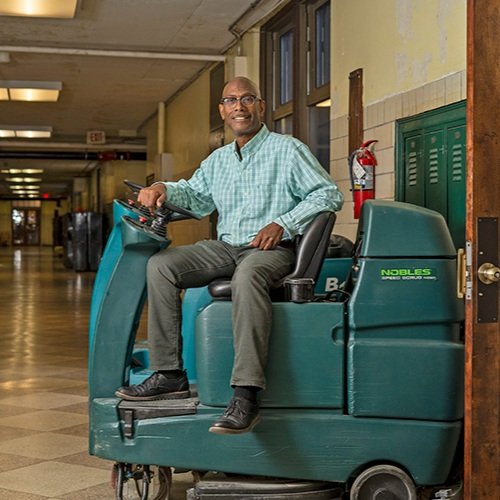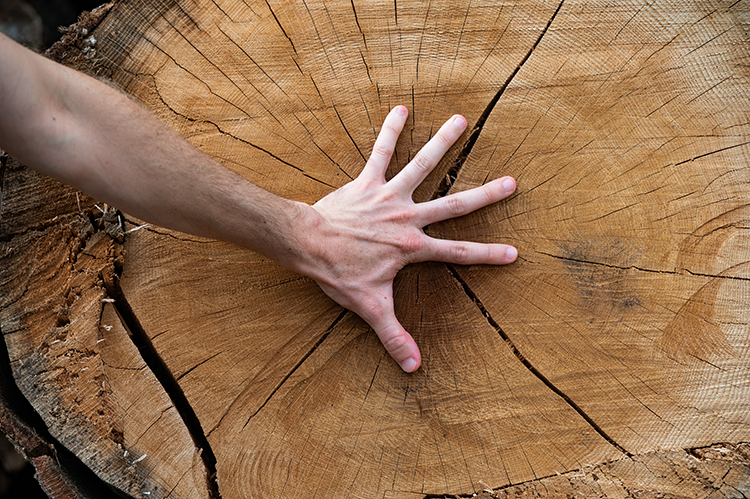Nic Esposito wants to reimagine the retail industry; he believes that people, profits and the planet would benefit from leaving business as usual behind. That’s where Circa Systems comes in. Esposito founded the Philadelphia-based company in 2023 to create a more sustainable, local retail model, allowing paying members to purchase and swap mostly used products
MoreWatch how organizations like Fabscrap and All Together Now PA are supporting sustainable clothing designers like Lobo Mau increasing textile recycling to build a circular textile industry in Philadelphia. Read the full cover story here. Grid and Fabscrap are also hosting a live panel discussion on the cover story on Jan 19th, register here.
MoreLindsey Troop is the regional manager for Fabscrap Philadelphia. Photography by Drew Dennis. Fashion Forward By Samantha Wittchen Jordan Haddad sat in his 1,800 square-foot studio in South Philly’s BOK. The waste was piling up. His local sustainable fashion company, Lobo Mau, had been saving fabric scraps from all of the clothing it designed and
MoreYing Founder and CEO Karla Ballard loads the app. Photography by Drew Dennis. Swipe for Service By Nic Esposito Karla Ballard’s journey to founding the skill sharing platform Ying is a tale that traverses the country and beyond, from Germantown to Barbados, from Wilmington to the West Coast. Born and raised in Germantown, Ballard’s upbringing
MoreI’m wearing spandex right now. No, I’m not at my computer in an Olympic leotard or even Lululemon athleisure. I’m wearing Levi’s jeans, and though they are almost all cotton, they have about 3% spandex, a kind of plastic, woven into them. The unfortunate fact that they have plastic in them prevents them from being
MoreAlisa Shargorodsky, the founder of ECHO Systems, hears it time and time again when she tells someone she works in the waste industry: “Oh, are you guys into recycling?” They’re not. “We’re not here to advocate for recycling,” she’ll say. “We are building infrastructure for radical reuse.” ECHO Systems envisions a world where food service
MoreThis 16-ounce jar holds all the waste produced on the set of “Citywide.” Photography Courtesy Fishtown Films. A 16-ounce mason jar filled with trash feels like a trophy to Emily Gallagher and Austin Elston, cofounders of Fishtown Films. It was the designated place for all waste produced during the creation of their first feature-length film, “Citywide.”
MoreLiving a sustainable lifestyle can be a daunting undertaking, especially if you don’t know where to begin. Welcome to Philly Low-Waste Living. I’m Emily Rodia, the founder of Good Buy Supply—Philly’s one-stop-shop for sustainable home goods. We specialize in all areas of the home from kitchen, bathroom to laundry but I can also help you
MoreIn 2013 the School District of Philadelphia closed 23 schools, including a massive gray stone building on South Ninth Street, the Edward W. Bok Technical High School. In an unexpected twist, the development and design firm Scout bought it for $1.75 million and has been gradually repurposing it into a sanctuary for creatives since July
MoreMulch, compost and wood chips are piled high on the concrete grounds of the Fairmount Park Organic Recycling Center in West Fairmount Park. On a typical day at the center, city residents fill out the sign-in sheet and waiver form and collect whatever organic materials they need from the scattered piles with shovels and buckets
MoreFull disclosure: I am a business partner in Bennett Compost and have been for over 10 years. Like the guy who claimed he liked his electric shaver so much that he bought the company, so too was I drawn to this business from the get-go. It was just an irresistible idea. Tim Bennett, ever smiling
More
